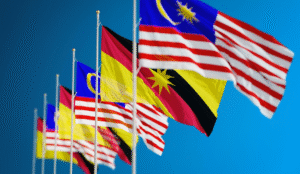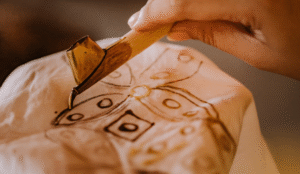The Legend of Hang Tuah: Astounding Loyalty, Bravery, and Malay Heritage
In the tapestry of Malay history, few figures shine as brightly as Hang Tuah. Revered as a warrior, diplomat, and symbol of loyalty, his story has transcended centuries to become an essential part of Malaysia’s cultural and national identity. To Malaysians, the legend of Hang Tuah is not just about a man who lived during the height of the Malacca Sultanate—it is about values, heritage, and lessons that continue to shape the way loyalty and honor are understood in society today.
For centuries, parents have told children tales of Tuah’s bravery, while historians, writers, and storytellers continue to debate the line between myth and reality. The question often arises: Who is Hang Tuah? Was he a real historical figure or a creation of folklore designed to inspire unity and patriotism? While the exact truth may never be fully known, what is clear is that Tuah represents much more than his deeds; he embodies the spirit of Malay culture.
This article explores the fascinating legend of Hang Tuah, diving into his role as a warrior, the values he symbolized, and why his story remains deeply embedded in Malaysia’s cultural heritage.
Frequently Asked Questions (FAQ)
1. What is the story about Hang Tuah?
Hang Tuah is one of the most legendary Malay warriors, celebrated for his loyalty and bravery during the Malacca Sultanate in the 15th century. His story highlights his deep loyalty to the Sultan, his skills in silat (Malay martial arts), and his adventures defending the kingdom against enemies.
2. Why was Hang Tuah removed from history books?
Some schools reduced focus on Hang Tuah because historians debate whether he was a real figure or more of a legend. Since there are few historical records outside of the Hikayat Hang Tuah (an epic text), some see him as a cultural symbol rather than proven history.
3. Why did Hang Tuah fight?
Hang Tuah often fought to protect the Malacca Sultanate, its people, and its honor. One of his most famous duels was against his childhood friend, Hang Jebat, who rebelled after believing Hang Tuah was wrongly sentenced to death. This fight symbolizes the conflict between loyalty to authority and loyalty to friendship.
4. Where is Hang Tuah from?
Hang Tuah is said to have been born in Kampung Sungai Duyong, Malacca. Today, the area is still associated with his legacy, and Malacca proudly remembers him as a symbol of Malay strength and loyalty
5. What is the famous quote of Hang Tuah?
Hang Tuah’s most famous quote is: “Takkan Melayu hilang di dunia”, which means “The Malays will never vanish from this world.” This line has become a timeless expression of Malay pride, resilience, and cultural identity.
Early Life and Origins
The story of Hang Tuah begins in the 15th century during the glory days of the Malacca Sultanate, one of Southeast Asia’s most influential trading empires. According to the Hikayat Hang Tuah (a classical Malay literary work), he was born in Kampung Sungai Duyong, Melaka. His parents were said to be simple villagers, yet young Tuah displayed extraordinary qualities from an early age—intelligence, physical strength, and a sense of righteousness.
Even as a child, he showed a natural leadership ability among his peers. He was often described as courageous, disciplined, and loyal, traits that would later define his legendary role. Alongside his four companions—Hang Jebat, Hang Kasturi, Hang Lekir, and Hang Lekiu—Tuah trained in the art of silat, the traditional Malay martial art. This group of five warriors would eventually form the backbone of the Sultan’s defense, protecting the kingdom with their unmatched skills.
Some historians question whether he truly existed, suggesting that he may have been a literary creation to symbolize the virtues expected of a Malay warrior. Yet whether historical or mythical, his story carries weight because it reflects the cultural values of an era when loyalty to the ruler was paramount.
Rise to Fame in the Malacca Sultanate
The Malacca Sultanate in the 15th century was a vibrant hub of trade and culture, attracting merchants from China, India, the Middle East, and beyond. In such a thriving yet politically complex environment, the role of warriors and diplomats was crucial. It was here that he rose to prominence.
Tuah’s loyalty to Sultan Mansur Shah was unwavering. He became the Sultan’s most trusted admiral and bodyguard, often sent on diplomatic missions to foreign courts. His charisma and command of multiple languages made him a skilled negotiator. This ability helped Malacca secure alliances with powerful kingdoms such as China, which in turn enhanced the sultanate’s prestige.
Yet, what distinguished Tuah most was his bravery. Whether facing foreign invaders, rebellious warriors, or political intrigues, he displayed courage and discipline that won him admiration from allies and fear from enemies. Stories of his duels and battles spread across the region, cementing his status as the ultimate Malay warrior.
The Famous Brotherhood
The legend of Hang Tuah is incomplete without his four companions: Hang Jebat, Hang Kasturi, Hang Lekir, and Hang Lekiu. Together, the five formed a legendary brotherhood bound by loyalty, friendship, and shared ideals. Each warrior possessed unique strengths, but it was Tuah who stood as the leader.
Their bond is often compared to that of brothers, sworn to defend the Sultan and the Malacca kingdom. However, this brotherhood would also face the ultimate test when loyalty to a ruler clashed with personal friendship—a conflict that became the heart of the most famous episode in Malay literature.
The Betrayal and the Tragedy of Hang Jebat
Among the many tales of Hang Tuah, none is as compelling as the story of his alleged betrayal and his fateful duel with Hang Jebat. According to the Hikayat Hang Tuah, court enemies conspired against Tuah, accusing him of treason. Without a fair trial, Sultan Mansur Shah ordered his execution.
The Sultan’s chief minister, however, secretly spared Tuah’s life, hiding him until the truth could be revealed. Believing his beloved brother had been unjustly killed, Hang Jebat rebelled against the Sultan. Jebat seized the palace, declaring that blind loyalty should never outweigh justice.
When the Sultan discovered that Tuah was still alive, he ordered him to kill Jebat. This set the stage for the most tragic conflict in Malay folklore: the duel between two sworn brothers. Tuah, bound by loyalty to his Sultan, fought Jebat for seven days and nights before finally killing him.
This episode has long fueled debates in Malaysia. Was Tuah right to uphold loyalty at all costs? Or was Jebat the true hero, fighting for justice against tyranny? The legend continues to spark conversations about morality, power, and duty in Malay culture.
Values Embodied by Hang Tuah
The story of Hang Tuah has endured not only because of its drama but because of the timeless values it represents.
- Loyalty – Tuah’s unwavering loyalty to the Sultan is perhaps his defining trait. In Malay culture, loyalty to one’s ruler and nation is a virtue that carries immense respect.
- Bravery – Tuah faced countless battles and diplomatic challenges with courage. His bravery has made him a symbol of strength for generations.
- Discipline – His mastery of silat and his strategic thinking highlighted the importance of discipline and training.
- Sacrifice – By choosing duty over personal bonds, Tuah embodied the painful sacrifices that often come with loyalty.
These values continue to resonate in Malaysia’s cultural identity, shaping how people view leadership, friendship, and national pride.
Who is Hang Tuah? Myth or Reality
The question “Who is Hang Tuah?” is one of the most debated topics among historians. Some argue that he was a real figure, citing references in Malay manuscripts and oral traditions. Others suggest that he may have been a mythical hero created to embody Malay ideals.
Regardless of historical accuracy, he is very real in the cultural consciousness of Malaysians. His story reflects the golden age of the Malacca Sultanate, a period that is celebrated as the foundation of Malay civilization. By asking Who is Hang Tuah?, we are really asking what values define the Malay identity—and why stories of loyalty and sacrifice remain so important.
The Famous Quote of Hang Tuah
One phrase often attributed from him has become legendary in Malaysia: “Takkan Melayu hilang di dunia” (“The Malays will never vanish from the earth”). Whether or not he truly spoke these words, the quote has become a rallying cry for resilience and cultural pride.
This phrase is more than a statement—it is a promise that Malay identity, language, and traditions will endure despite colonialism, modernization, or globalization. It highlights why the story of Hang Tuah is not simply about the past but about the survival and strength of a people.
Hang Tuah in Literature and Arts
This tale is preserved primarily in the Hikayat Hang Tuah and the Sejarah Melayu (Malay Annals), two important texts in classical Malay literature. These works, blending history and legend, paint him as both a warrior and diplomat.
In modern times, his story has been retold through novels, theater, films, and television. From traditional wayang kulit (shadow puppetry) to contemporary stage plays, he continues to inspire Malaysian arts. Schools often teach his story as part of national history, ensuring that each generation grows up with an awareness of his legacy.
Symbol of Malay Heritage
To Malaysians, Hang Tuah is more than a character in folklore—he is a symbol of Malay heritage. His loyalty, courage, and values are seen as the foundation of Malay culture. The duel with Hang Jebat, in particular, reflects the eternal tension between loyalty and justice, a theme still relevant in modern society.
Statues, museums, and even towns bear his name, particularly in Melaka where his legacy is most celebrated. For tourists, visiting these places offers a glimpse into Malaysia’s cultural soul. For Malaysians, it is a reminder that their heritage is rich, complex, and deeply meaningful.
Lessons from the Legend of Hang Tuah
Why does the story of Hang Tuah continue to matter today? The answer lies in the lessons it teaches:
- Loyalty vs. Justice – The conflict between Tuah and Jebat highlights the complexities of morality. It challenges us to think about where loyalty should end and justice should begin.
- Cultural Pride – His famous quote reminds Malaysians to take pride in their roots and preserve their identity.
- Unity and Strength – The brotherhood of Tuah and his companions symbolizes the importance of unity in times of adversity.
- Adaptability – As both warrior and diplomat, Tuah showed the importance of strength balanced with wisdom.
These lessons transcend time, offering guidance not only for Malaysians but for anyone reflecting on leadership, values, and cultural survival.
Conclusion
The legend of Hang Tuah is one of loyalty, bravery, and cultural pride. Whether seen as a historical figure or a mythical creation, his story has shaped the way Malaysians view their heritage. By embodying loyalty to the Sultan, courage in the face of adversity, and sacrifice for the greater good, he remains an enduring symbol of Malay identity.
The question Who is Hang Tuah? may never be answered with certainty, but perhaps the truth lies not in whether he lived but in what he represents. For Malaysians, he is a reminder that heritage lives on through values, stories, and the enduring spirit of a people who refuse to vanish from the world.
Explore the Foundations of Malaysia
To dive deeper into the events and figures that shaped our nation, this page connects to detailed guides and historical facts about Malaysia’s journey:



